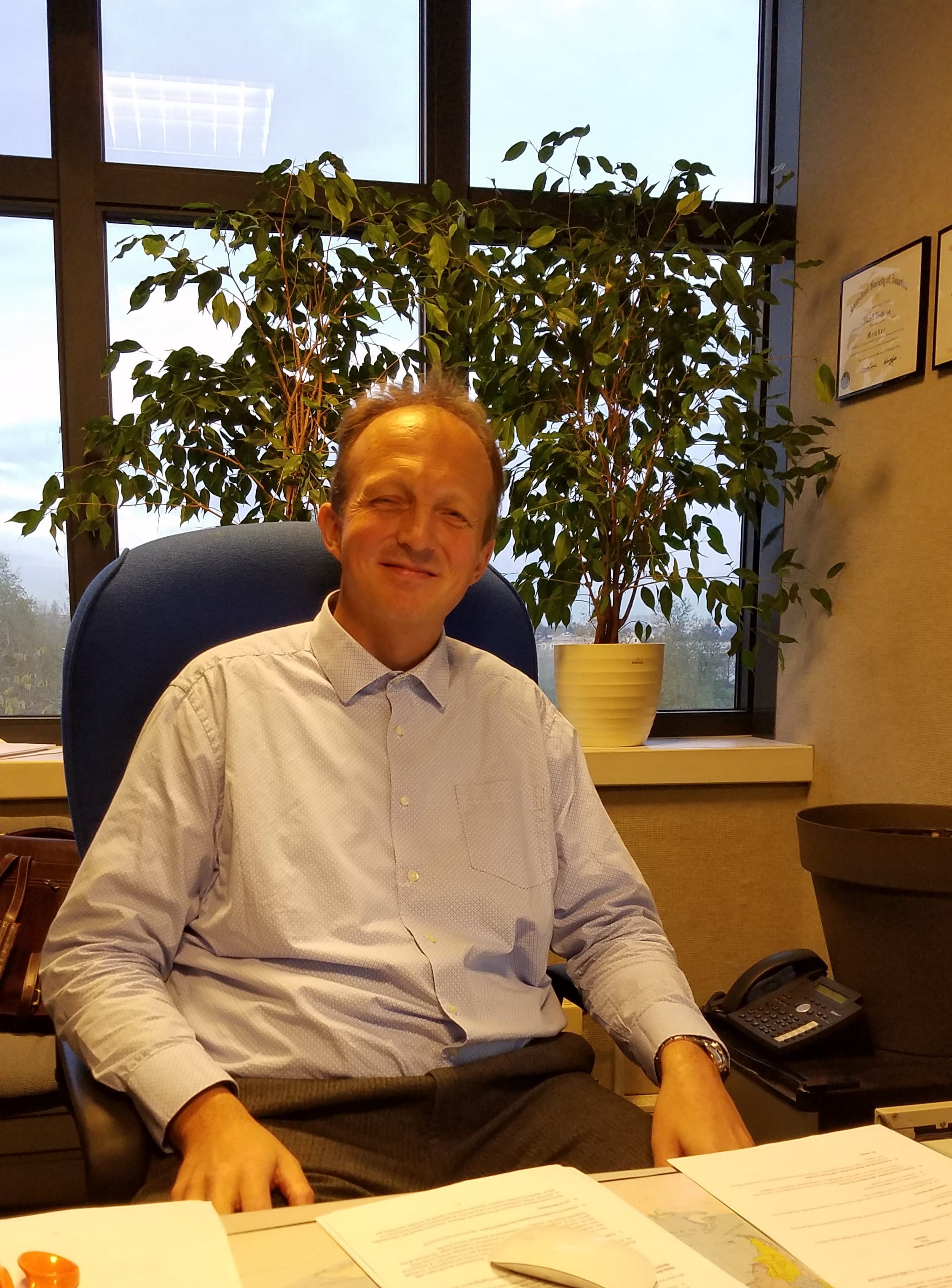
As I sat talking to a good friend of mine, Giuseppe, the subject came around to the GTL blog. In no time at all he was telling me that I should interview of one his professors, Nico Declercq. According to Giuseppe, Dr. Declercq was the best professor he ever had. Intrigued I knew I would have to pick his brain and see why Giuseppe rated him so highly. So in this week’s interview, that is exactly what I did.
I knocked on Dr. Declercq’s door somewhat hesitantly not sure what to expect. As he greeted me I could tell there was something different about him. He seemed like someone generally interested and happy when dealing with people, a real people person. His soothing voice and nice smile always reassuring the audience he was there to help. Quite a good trait in a teacher.
Born in Belgium, Dr. Declercq – much like my father – was subject to learn many languages. Declercq currently speaks five different languages: Flemish (a form of Dutch), French, German, English, and Sinhalese (due to his Sri Lankan wife).
Declercq’s path to GTL is quite unlike other professors here. Most are American professors that have decided to come to Europe and branch out in terms of teaching and travel. Dr. Declercq is European and now teaches from Europe (specifically, Metz). He completed all his schooling in Belgium. At 18, he began attending the Catholic University of Leuven and graduated with a degree in Physics. Dr. Declercq then attended Ghent University, earning a PhD in Engineering Physics. His Post Doc work was split between the National Center for Physical Acoustics in the U.S. and Ghent University. Dr. Declercq is now the head of the Mechanical Engineering department here at GTL, so at this point in the interview I was intrigued as to how he came to this position.
Surprisingly Dr. Declercq wasn’t originally interested in Mechanical Engineering. He began telling me of his fascination with astrophysics and the vibration of stars. He got in touch with a professor dealing primarily with the vibration of materials and so began his research into ultrasonics. Seeing the confusion in my face as he uttered these words, he immediately went into professor mode, listing off examples and easy to understand concepts such as Chichén Itzá, Mexico (a Mayan ruin near Cancun). It is a large pyramid that filters sound waves. A common example is when people clap their hands, the sound returning is that of a bird chirp instead of a quieter clap. He listed plenty more to solidify the knowledge in me: the amphitheaters in Greece, libraries’ reading rooms in Viborg, Finland, and so on. Today, you can find Dr. Declercq teaching three courses here, including Acoustics, Waves and Solids, and Engineering Thermodynamics.
In closing, Declercq gave some of the best GTL-tailored advice I’ve heard to date. “Most students try to travel when they’re here. It’s good to travel, however, you need to learn to study while you travel. It’s not easy, but if you can combine travel with study you will be a very good engineer!”
